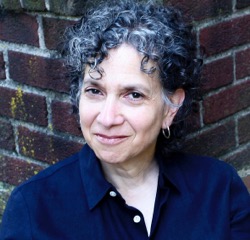
What’s the most important lesson you’ve learned as a writer?
Just get it on the damn page. Once you spit some stuff out, you can mess around with it and improve it. An editor can advise you (sometimes a mixed blessing, I admit). Other folks can read it and help make the work better. If it’s all in your head, where of course it’s perfect, and you therefore delete every sentence you write because it’s imperfect, then you can’t make it better and nobody else can help you. It’s a recipe for paralysis. Start writing.
What’s been the biggest surprise of your writing life?
That I still take pleasure in it. It has been, no lie, 50 years that I’ve been a reporter and writer. I can’t claim to have loved every story or every minute, but I still take satisfaction in producing a decent sentence, a well-wrought column or an essay that says what I want it to say. Maybe I’ll get tired of this work when I’m 80, but maybe not.
What’s the best piece of writing advice anyone ever gave you?
Let me turn this around (since one consequence of being at this for 50 years is, who remembers what someone told me back when?) and share a bit of what I advise my journalism students: a) Strong, active verbs. (It’s not incorrect to say, “He was a cab driver.” It’s just better to say, “He drove a cab.”) b) No sludge. (Sludge: using more words than necessary to convey your meaning. You don’t have to point out, “She held a microphone in her hand.” How else would she hold it? If she were gripping it with her toes, you would have said so.)c) Avoid groaners like “journey” (unless describing treks across the tundra), “dream” (unless referring to visions during sleep) and “passion” (reserve for actual sex).
If you had to use a metaphor to describe yourself as a writer, what would it be?
Oh god, I don’t know. Maybe a mule. Not glam, not fast, kind of inflexible but gets there eventually.
Paula Span is an alumna of the alternative press and the Washington Post and has freelanced for a raft of newspapers and magazines. The author of “When the Time Comes,” a book on eldercare, she now writes the New Old Age (https://www.nytimes.com/column/the-new-old-age ) and the Generation Grandparent (https://www.nytimes.com/column/generation-grandparent ) columns for the New York Times . She has taught at the Columbia University Graduate School of Journalism since 1999.
Rock solid advice for all writing weathers, from the Unsinkable Span. Full disclosure: we’ve been friends since undergrad days at the BU (Boston University) News, where she quickly earned the nickname Wonderwoman…a name that still fits.
“Get it on the page” is great advice for all kinds of writers, even those of us who are not professional writers but still need to write reports, briefs, rules, whatever. “Stop thinking and start writing” was how my old boss used to put it.
This pithy advice ( I think that’s a groaner !) holds true for me in writing music as well. Thanks for sharing your wisdom, Paula.
Undeniably believe that which you said. Your favorite justification seemed to be
on the net the simplest thing to be aware of. I say to you, I certainly get irked while people consider worries
that they plainly do not know about. You managed to hit the nail upon the top as well as defined out the whole thing without having side-effects , people could take a signal.
Will probably be back to get more. Thanks